
Nick Ferrari 7am - 10am
1 July 2020, 10:29
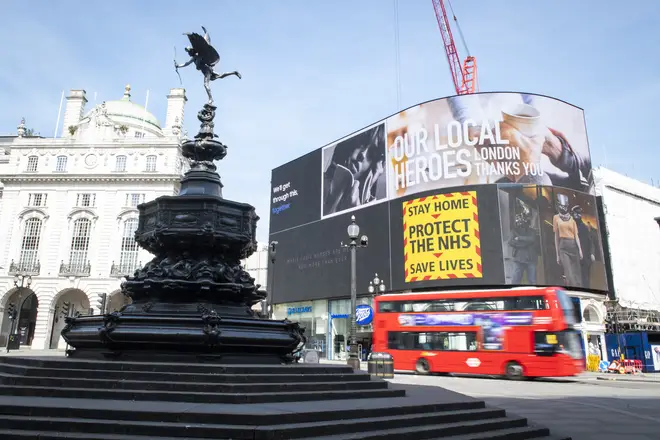
Today marks 100 days since Boris Johnson first announced the country would be going into lockdown because of the coronavirus pandemic.
As the shocking death toll of covid-19 rose beyond 40,000, people have adjusted to the 'new normal' of shut shops, working from home and staying indoors.
With some restrictions already eased and others set to be relaxed soon, here is a look back at the major events that have happened since the country first 'shut down'.

Boris Johnson's coronavirus lockdown speech
When the UK lockdown was announced on March 23, the cumulative number of Covid-19 deaths stood at 1,000. There had been 950 in England and Wales, 43 in Scotland and seven in Northern Ireland.
As of Monday 30 June, it stands at 43,730, according to the Department of Health and Social Care.
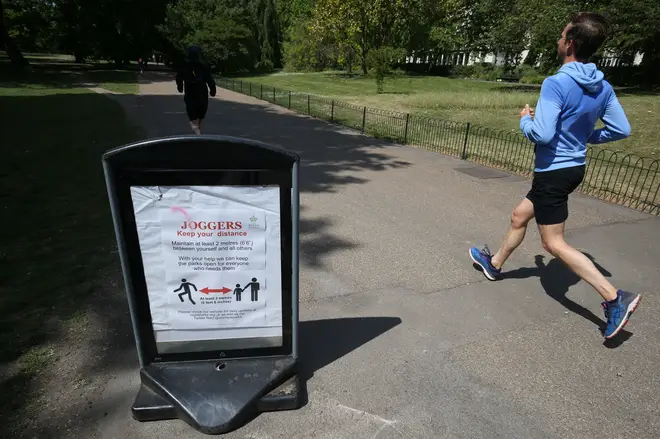
23 March: Prime Minister Boris Johnson tells the public about the new rules that are coming into place to combat coronavirus.
People were told to stay at home except for limited reasons including once-daily exercise, food shopping and work if it is absolutely necessary.
All non-essential shops are shut, events including weddings are cancelled and gatherings of more than two people in public are prohibited.
The two metre social distancing rule is introduced.
25 March: Clarence House announces that Prince Charles has "mild symptoms" of coronavirus.
Emergency powers to deal with the coronavirus outbreak clear the House of Lords without amendment.
Almost half a million people applied for Universal Credit in just over one week.

UK chancellor extends furlough scheme for four months
26 March: Chancellor Rishi Sunak announces the furlough scheme for the self- employed.
The UK's daily death toll rises over 100.
"The Clap for our Carers" campaign starts with a weekly round of applause planned for every Thursday evening to thank NHS workers.
27 March: Boris Johnson and health secretary Matt Hancock both test positive for coronavirus.
England's Chief Medical Officer Chris Whitty says he is displaying symptoms and starts to self-isolate.
29 March: England's deputy chief medical officer Dr Jenny Harries says that life will not return to normal for at least half a year.
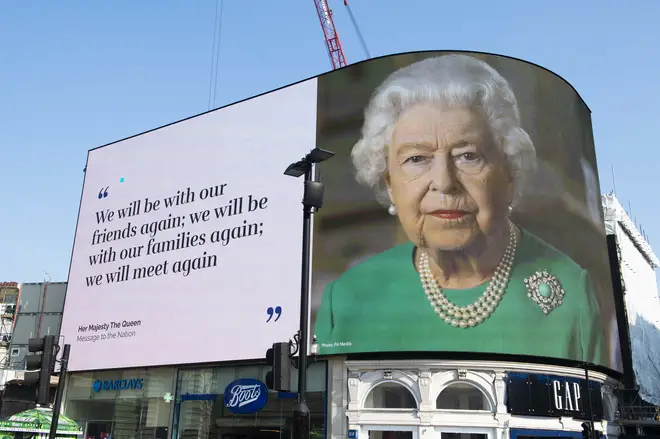
3 April: The Nightingale Hospital at the ExCel Centre in London opens with the capacity to hold up to 4,000 patients.
5 April: Boris Johnson taken to an undisclosed hospital for testing.
The UK death toll passes 10,000, with government figures at this stage only accounting for hospital deaths.
Catherine Calderwood, Scotland's chief medical officer, resigns after breaching lockdown restrictions by visiting her second home.
The Queen makes a televised address to the nation, telling people "we'll meet again".
6 April: Boris Johnson is admitted to intensive care as his Covid-19 symptoms worsen
12 April: Boris Johnson is discharged from hospital

Matt Hancock Opens The Nightingale Hospital
13 April: The UK death toll passes 20,000 when deaths in all settings are taken into account, but the official death toll stands at 11,329 on this date.
16 April: Captain Tom Moore, then aged 99, completes 100 laps of his garden in Bedfordshire and ends up raising more than £30 million for the NHS.
22 April: MPs appear on videolink during Prime Minister's Questions for the first time ever in parliamentary history.
23 April: Researchers at the University of Oxford begin to test a potential Covid-19 vaccine on human volunteers.
27 April: Boris Johnson returns to work in Downing Street
29 April: The UK death toll passes 30,000, when deaths in all settings are taken into account, but the official death toll stands at 26,097 on this date.
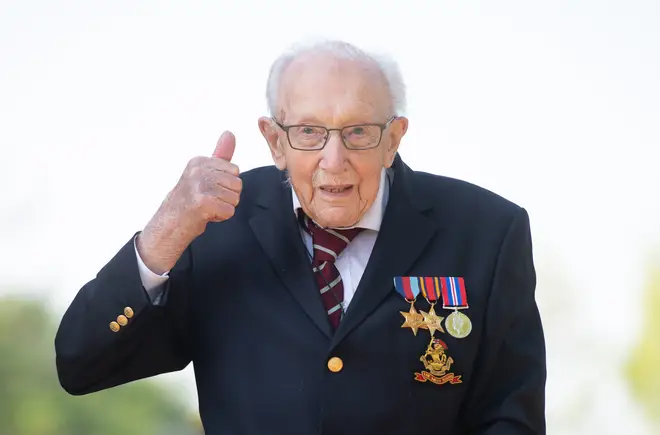
2 May: The UK death toll passes 40,000 when deaths in all settings are taken into account, but the official death toll stands at 28,131 on this date.
5 May: The UK surpasses Italy for the highest death toll in Europe, with more than 32,000 fatalities.
8 May: A contact tracing app is trialled on the Isle of Wight.
6 May: Professor Neil Ferguson quits as scientific adviser to the government and leaves Sage after breaking social distancing rules.
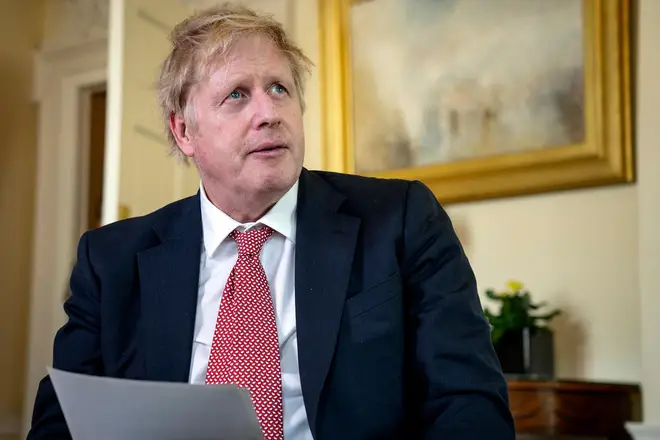
10 May: The government changes its slogan from "stay home" to "stay alert". The original slogan is kept by Leaders of Wales, Northern Ireland and Scotland.
22 May: Quarantine measures are announced requiring those entering the UK from 8 June to share contact details and then self-isolate for 14 days.
24 May: The UK death toll passes 50,000 when deaths in all settings are taken into account, but the official death toll stands at 36,914 on this day.
25 May: The prime minister's chief aide, Dominic Cummings, gives a press conference to defend himself over allegations that he breached lockdown restrictions by travelling to Durham, and Boris Johnson refuses to sack his advisor.
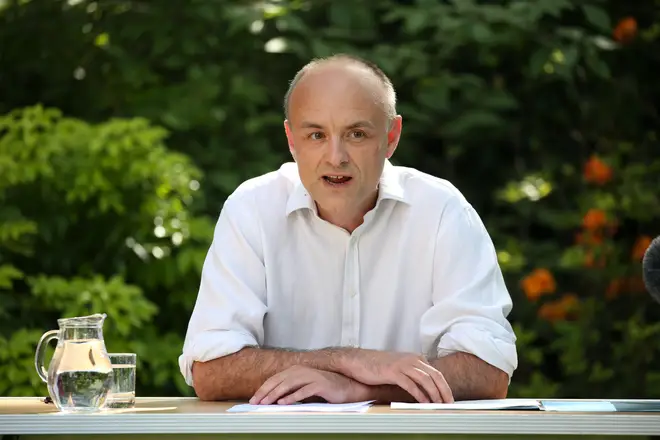
1 June: Reception, Year 1 and Year 6 children across England are allowed to return to school.
Groups of six people can meet up outdoors, as long as they follow social distancing guidance.
9 June: Education secretary Gavin Williamson says that not all primary school students will return to the classroom before the summer, backtracking on previous government statements.
10 June: Professor Neil Ferguson tells the Science and Technology Committee that the UK coronavirus death toll would be 50 per cent lower if lockdown had been introduced a week earlier.
The Organisation for Economic Cooperation and Development predicts that Britain's economy will suffer the most of any country in the developed world.
13 June: "Support bubbles" are introduced to allow single adult households to stay overnight at another home without social distancing.

Compilation Clap for carers
15 June: Non-essential shops, zoos, safari parks and places of worship reopen in England.
Face masks become compulsory on public transport in England.
17 June: Premier League football returns behind closed doors.
18 June: The government U-turns over its own test and trace app says it will instead use tech provided by Apple and Google. Its release date is pushed back to autumn or winter, rather than May as originally set out.
It is announced that social distancing rules will be relaxed to a "one-metre plus" rule and spaces like pubs, cinemas and restaurants will reopen from 4 July.
26 June: Britain experiences a heatwave, and Boris Johnson warns that a "serious spike" could happen. A national incident is declared after Bournemouth beach becomes overcrowded.
28 June: Leicester becomes the first UK city to enter a local coronavirus lockdown following a surge in coronavirus cases.
While the rest of England will start to reopen from 4 July, non-essential shops in Leicester closed on Tuesday 5 June, schools will close to most pupils from 2 July and pubs, restaurants and hairdressers will remain closed.